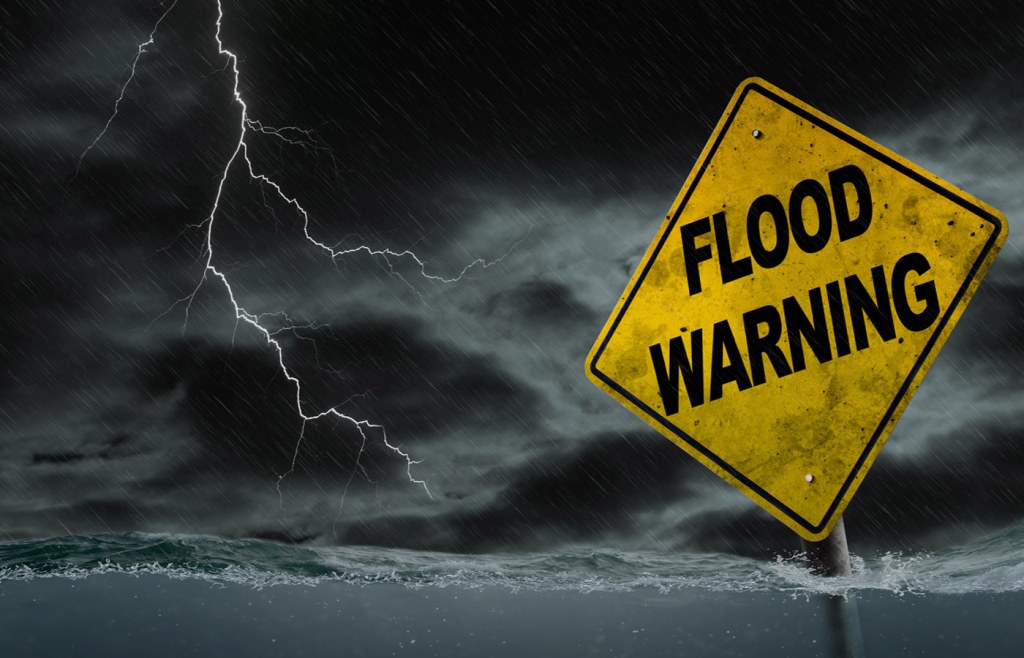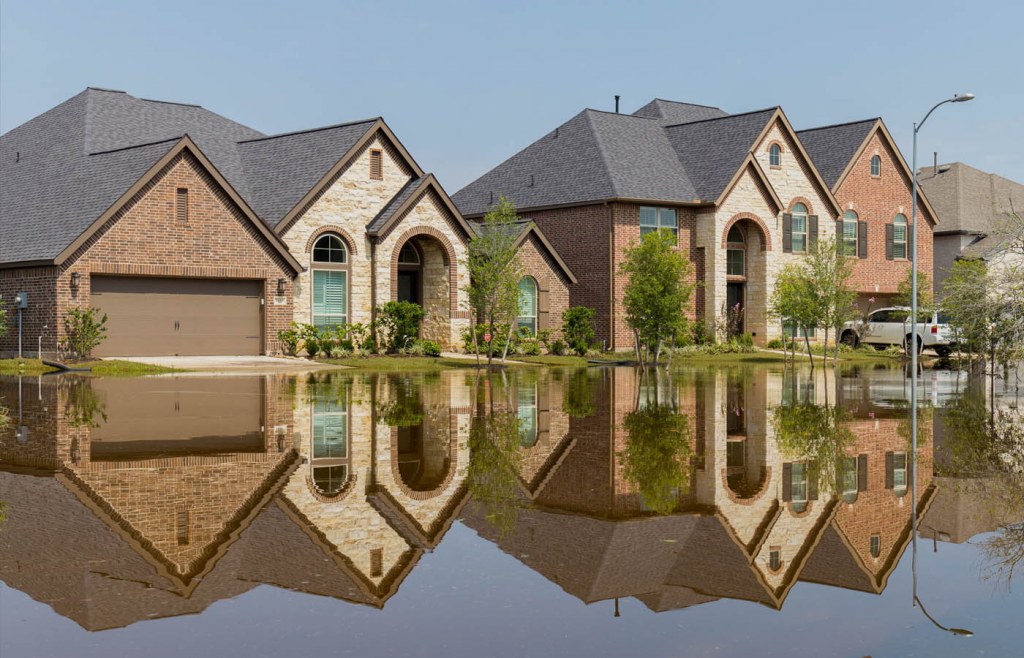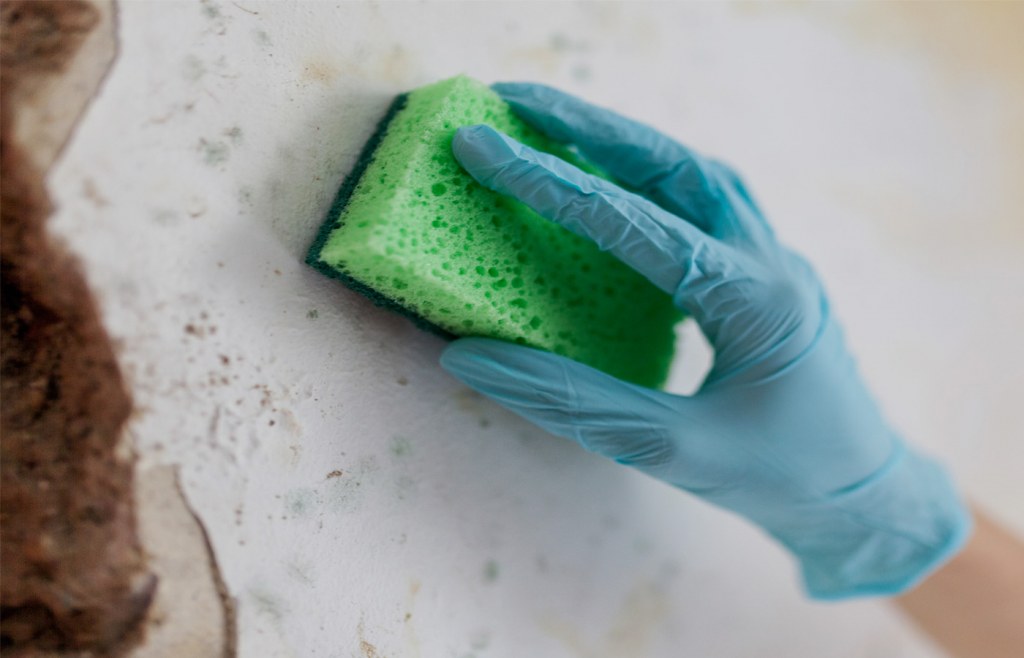Flash flooding is considered one of the most catastrophic weather disasters all around the world. Rising water levels during a flood can damage infrastructure, cause power outages, trigger landslides, and may result in deadly aftermaths. Heavy rainfall over a short period of time is one of the most common natural phenomena that elevates the risk of flooding. As a result, flash floods occur with little or no warning. In this blog, we’ll be discussing some essential flood safety tips to help you minimize your risk.
Some Essential Flood Safety Tips
Here are some tips to stay safe during a flood, which will prepare you for rising water while guiding you on what to do when the flood hits and after the floodwater clears.
- Before a Flood
- During a Flood
- After a Flood
Before a Flood

If you are under a flood warning and want to protect yourself and your property you should prepare ahead of time by taking note of the following tips:
- It is better to avoid building in areas that are prone to flooding unless you reinforce and elevate your home.
- If you already live in a floodplain and there has been a flood warning, follow safety measures and elevate all the electric panels, sockets and electronic appliances to avoid electrocution.
- Install No Return/Check Valve on sewer pipes to prevent water from entering into the drainage system of your home.
- One of the best flood safety precautions is to construct barriers around your property to prevent flood water from entering your home. If there are no barriers around your property and the flood hits, you can even use a sandbag as a temporary levee against floodwater.
- Get the walls of your basement space sealed with waterproofing compounds to prevent stop water from seeping in. You can also take help from our guide on how to waterproof your walls.
- Pay attention to the weather forecast for your area. If there is an increasing chance of heavy rain or storm, check for the information on flooding risk.
During a Flood

If the flood has already hit your area, you should be making use of these tips:
- Every household should have an emergency plan and the members should practice survival skills like proper use of first aid kit at home in case of an emergency. It’s also in your best interest to know how to disinfect water to prevent the widespread of diseases.
- Try to be prepared and assemble an emergency kit as soon as possible if you need to evacuate. Keeping necessary prescription medications with you should be on priority in the list of your emergency kit items.
- If there is no power, charge cell phone batteries with the help of power banks and any rechargeable flashlights before leaving. You can also keep extra batteries with you in case there’s a prolonged power outage.
- Listen carefully to the evacuation warnings. If there is any chance of a flash flood, move to higher grounds immediately. If there is enough space, move important items to an upper storey and bring in the outdoor furniture to protect your furnishings against water damage.
- Even if the power is out, don’t forget to turn off the main switch of your home and disconnect all electrical appliances to prevent electrocution.
- Avoid driving into the flooded areas as the road beneath isn’t visible and in such a condition, open manholes and other obstacles that are hidden underwater can result in deadly accidents. If flood water is constantly rising around your car, abandon it immediately and take refuge on higher ground, only if it’s safe.
Note: Follow all these flood safety precautions to make sure that you and your loved ones are safe during a flood.
After a Flood

- Return home only once the area is declared safe by the authorities.
- Check for the news reports to find out whether the potable water supply is safe to use.
- Avoid making use of any standing flood water as it may be contaminated by oil, gas or raw sewage. Downed or underground power lines may also get the flood water electrically charged.
- Avoid going to the areas where the water is still moving as the intensity of danger only decreases when the water level drops.
- If you see a road cracked don’t take such a route as it may have weakened and may not withstand the weight of a car and collapse.
- Maintain a safe distance from downed power lines and notify the power company about them.
- One of the key tips to stay safe during a flood is to stay out of any building that is surrounded by floodwaters.
- Clean your home as well as water holding tanks, to get rid of different types of bacterias and algae. Damaged and leaking sewage systems can also pose serious health hazards so make sure they get fixed as soon as possible.
- Pump water out of a building, which has been flooded, only when water in its surroundings has receded.
- Leftover mud from flash flooding can contain particles from sewage and hazardous chemicals so make sure you are cleaning and disinfecting everything that was stuck in the flood water.
These were some of the most essential flood safety tips. If you want to add something here based on your personal experience, please feel free to share it with us at blog@zameen.com. Your valuable feedback helps us improve.
On a side note, you might also be interested in taking a look at our blogs in which we have given you tips for driving a car and riding a bike safely during rain. Moreover, if you are planning to leave on a vacation, these tips will help you keep your home safe while you are away.
Stay tuned to Zameen Blog, Pakistan’s No.1 lifestyle blog, to read more of our informative lifestyle pieces. You can also subscribe to our newsletter to receive daily email alerts from our blog section.



